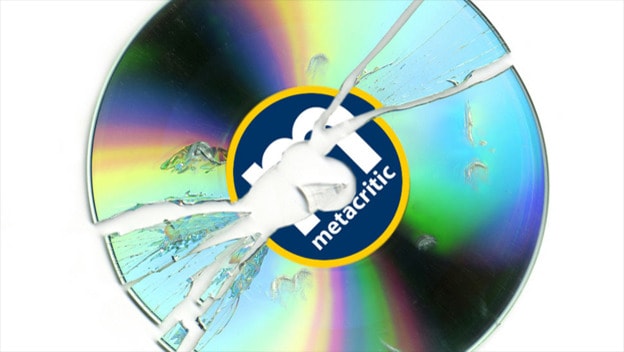Here at Cheat Code Central, we use a numerical scale at the end of our reviews in an attempt to objectively quantify something that is inherently subjective in nature. We break the game down into categories, and rate them according to how much we enjoyed them. Next, we total up the categories, divide by the amount of categories, and lo and behold, we get an average to guide our final review score. ( Here’s our Assassin’s Creed IV review if you want an example.) This is, essentially, what Metacritic does, but instead of being the opinion of just one reviewer, it is the compiling, weighting, and averaging of a ton of publications.
The philosophy makes sense, to an extent. If you are pulling this data from a larger sample set, then the end result will be a better indicator of general reviewer satisfaction. But, still, the numbers are arbitrary in the first place, and are born from some kind of magic where aesthetic is converted into logic. The translation is loose at best.
Back in the former years of video game related journalism and critique, publications were decidedly lacking in quantity. As a result, they possessed a good deal of power over the success of a sale. They could speak how they felt, and they could assign a number to a game that readers would understand was reflective of that publication, or more specifically, a certain member of the staff. The diminutive amount of actual game reviewers meant that consumers could better keep track of the nature of the writers, and respond accordingly. Also, since the publications were largely in print and cost money, nobody was buying magazines just for the review scores. The grade affixed to the end was relatively unimportant compared to the text, and readers understood that. I purchased plenty of low-rated games simply because I was a kid and had different tastes than the adults reviewing the games. Fortunately, enough information was embedded in the text.
Eventually, the industry blew up and took to this thing called the Internet. Cheat Code Central was there on the forefront of the movement, gaining some Internet primacy because of the nature of gaming at the time. In the world before Achievements and Trophies, cheat codes ruled.
But the scales moved to the Internet as well. It seemed second nature, and with the newfound ease of publishing, a lot of jobs opened up in the field; a lot of which would be on a voluntary basis. As the field grew, many different philosophies developed.
For example, some may believe that the whole scale needs to be utilized to accurately depict a game’s worth. For them, an average game would receive a 5 out of 10 (or a 2.5 stars out of 5). For people who think in terms of high school (perhaps an indicator of the field’s continuing youth), a 7 would be indicative of an average game. Some may rank games A through F, while others will simply use a binary system answering, “Should you buy this game?” with a flat yes or no.
And, despite their inconsistencies, the people behind Metacritic.com will list these outlets on their website in the manner that they see fit. This is particularly troublesome when you consider that an F will net a game a 0 score, when the governing philosophy behind assigning it an F may have been that it was merely less than a 65% (or whatever your state deems failing) in a school-inspired system.
As time marches on under this system, philosophies evolve further. A lot of publications have come to understand that 7 is what a game publisher would consider average, so they grade accordingly. Others refuse to yield to that belief. Still, the scale has become top heavy and leaves a lot of the scale under-utilized. This makes Metacritic an unreliable buyer’s guide, especially for the uninformed.

But Metacritic doesn’t just affect the reviewers and the consumers. It also holds considerable influence over the business end, as it has become the measure by which companies determine a game’s (or developer’s) worth. This course of action isn’t without validation, as Wall Street clearly pays attention to the Metacritic scores of games. Sites usually post scores before sales data is even applicable. This makes the information extremely valuable to investors. One needs only to look at how the value of 2K Games rose after the reviews came in to get a glimpse at how Wall Street people respond to Metacritic data. And, in case you don’t know, Wall Street people are not usually gaming people.
So, what we end up with is a system wherein Metacritic data affects stock prices, which affects a publishers decision to support or drop developers, which affects the games we get, which sucks because art will always suffer in the interest of dollars. Also, since the review scores are so important to publishers, who happen to cover a lot of sites with advertisements, there is a lot of pressure on the reviewer to like a game. It’s a corrupt system, and far from the ideal way to experience a game.
So, is there any fixing it? I don’t honestly know. I think that scales, while obviously flawed, are a noble attempt of breaking down a game. I don’t think they’re inherently evil, and I can certainly respect them from a purely utilitarian standpoint. But, the general scale we have now, which has become so top heavy and convoluted, can’t persist. If we are going to continue using this method, as an industry, we need to somehow reset it with a unified standard.
